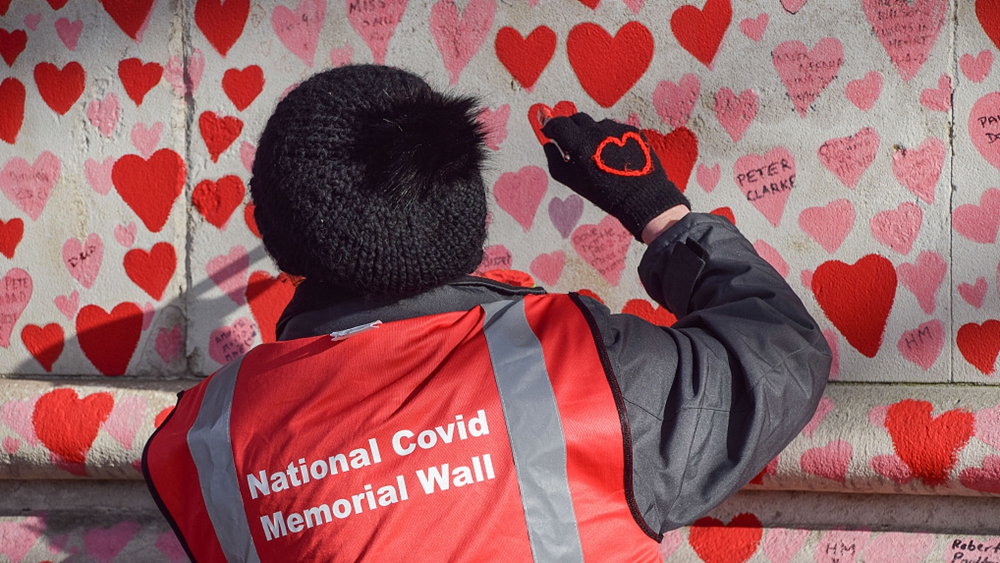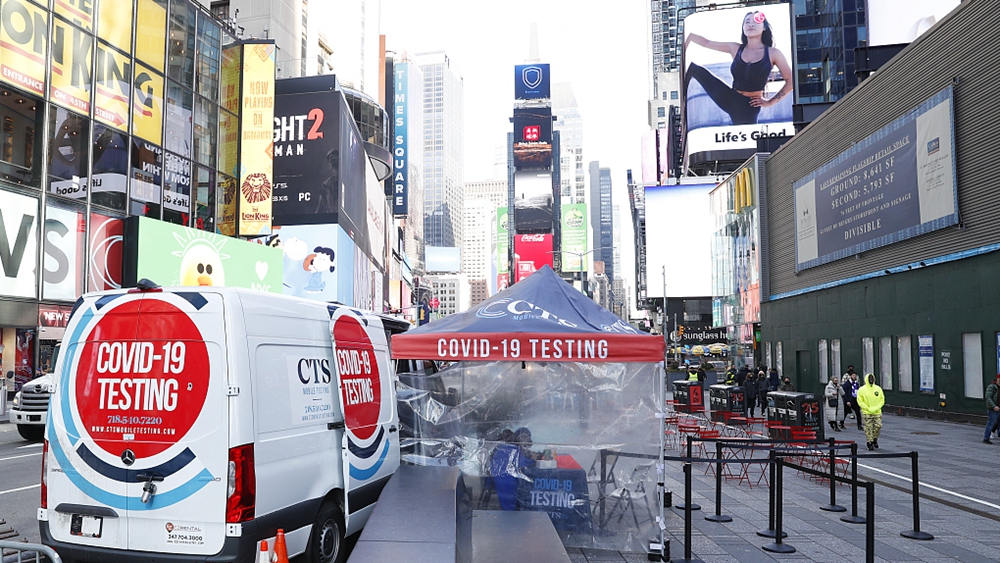
A volunteer paints red hearts on the National COVID-19 Memorial Wall in London, UK, February 4, 2022. /CFP
A volunteer paints red hearts on the National COVID-19 Memorial Wall in London, UK, February 4, 2022. /CFP
Global COVID-19 cases surpassed 400 million on Tuesday, according to data from Johns Hopkins University.
The university's global case count was 400,244,031, with 5,761,208 deaths worldwide, as of 5:21 p.m. local time (2221 GMT).
The United States has reported 77,025,027 cases and 908,262 deaths, both the highest counts around the world, accounting for more than 19 percent of the global cases and more than 15 percent of the global deaths.
India recorded the world's second largest caseload of 42,339,611, followed by Brazil with 26,776,692 cases as well as the world's second largest death toll of 634,057.
Countries with more than 12 million cases also include France, Britain, Russia and Turkey, while other countries with over 200,000 deaths include India, Russia, Mexico and Peru, according to the university's tally.
The global caseload reached the grim milestone of 100 million on January 26, 2021, rose to 200 million on August 4 and exceeded 300 million on January 6, 2022.

A mobile COVID-19 testing site in Times Square, New York City, U.S., February 8, 2022. /CFP
A mobile COVID-19 testing site in Times Square, New York City, U.S., February 8, 2022. /CFP
Global COVID-19 response program 'running on fumes'
According to the World Health Organization (WHO) and other aid groups, a global initiative to get COVID-19 tests, treatments and vaccines to poorer nations has only received 5 percent of the donations sought to deliver on its aims this year.
The Access to COVID-19 Tools (ACT) Accelerator budgeted $23.4 billion for its efforts from October 2021 to September 2022, of which it hoped $16.8 billion would come in the form of grants from richer countries. However, so far it has had just $814 million pledged, leaders of the initiative said on Tuesday.
"That's just a minuscule five percent of what we require. It is time to awaken the conscience of the world," said the WHO's global ambassador for health financing, Gordon Brown, a former British prime minister.
The ACT-Accelerator hub encompasses the COVAX initiative, which has focused on equitable access to vaccines. It also involves providing tests and treatments to low- and middle-income countries, as well as personal protective equipment (PPE) for healthcare workers.
Bruce Aylward, a senior WHO official who acts as coordinator for the initiative, said it was stuttering due to a lack of funds.
"The global response is running on fumes," he said.
The lack of funding has been apparent since the start of the pandemic. The gap for the project's previous budget was $14.5 billion. Partners said the majority of funding so far had gone into COVID-19 vaccines, leaving the other goals – tests, treatments, and PPE – short.
(With input from agencies)

